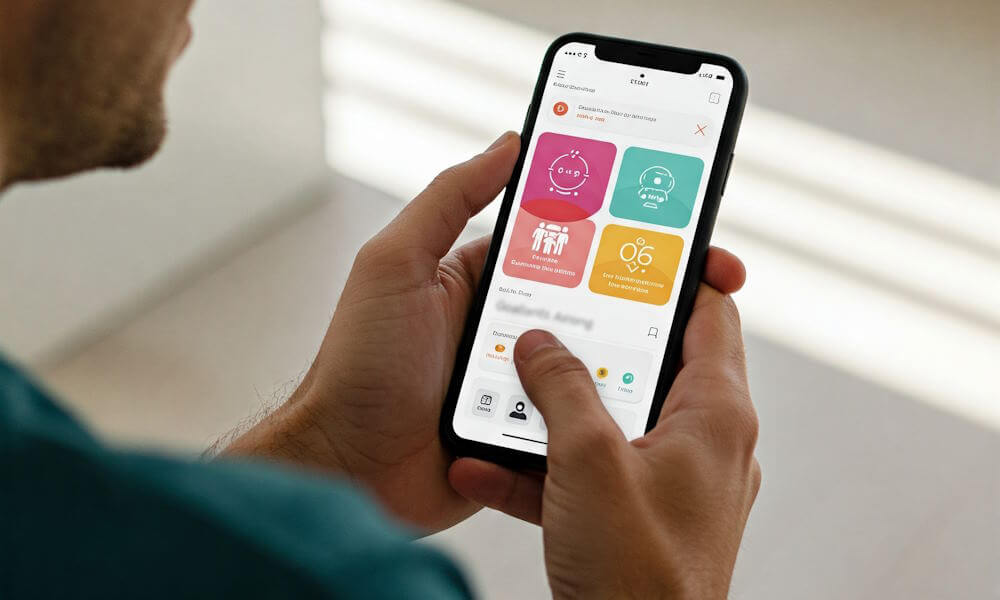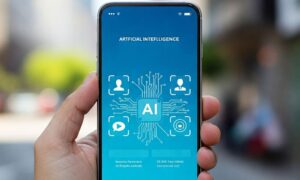Personal development is a lifelong process that encompasses various factors, including emotional, intellectual, social, and spiritual growth. It involves self-reflection, taking initiative in learning new skills, and setting objectives to enhance one’s quality of life. As individuals seek to improve themselves, they often explore different avenues, including books, seminars, and workshops; however, the advent of technology has introduced a more accessible option: mobile applications. These personal development apps serve as tools designed to assist users in cultivating their potential and achieving their goals.
The significance of technology in personal development cannot be overstated. Mobile apps offer a unique blend of convenience and functionality, allowing users to engage with their personal growth journey anytime and anywhere. With features like tracking progress, setting reminders for goals, and connecting with like-minded individuals, these applications simplify the complexities associated with the pursuit of self-improvement. Moreover, the interactivity and gamification elements found in many of these apps can enhance motivation, making the journey toward personal growth more enjoyable and effective.
In essence, personal development apps cater to various aspects of self-improvement, ranging from mindfulness and meditation to physical fitness and skill acquisition. They provide users with customized experiences tailored to their individual needs, preferences, and stages of development. By utilizing such technology, individuals can better manage their learning curves and maintain accountability toward their objectives. As personal development continues to gain traction as a vital aspect of overall well-being, the role of mobile applications in facilitating this progression becomes increasingly essential, bridging the gap between aspiration and real change.
Top Categories of Personal Development Apps
In the rapidly evolving digital environment, personal development apps have carved a significant niche, catering to diverse needs and preferences. These applications can be categorized into several key areas, enabling users to focus on specific aspects of personal growth. Understanding these categories can assist individuals in selecting the right tools to aid their development journey.
The first prominent category is mindfulness and meditation apps. These applications provide guided meditation sessions, breathing exercises, and techniques to foster mindfulness, helping users manage stress and improve mental clarity. Notable examples include Headspace and Calm, which offer structured programs tailored to various skill levels, making them accessible to both beginners and seasoned practitioners.
Another essential category is productivity apps, aimed at enhancing efficiency and time management. Tools like Todoist and Trello allow users to create task lists, set deadlines, and prioritize responsibilities. These applications often come equipped with comprehensive features such as reminders, collaboration options, and project tracking capabilities, which are invaluable for personal and professional development.
Learning and educational resource apps form a crucial part of personal development as well. Platforms like Duolingo and Coursera enable users to acquire new skills, languages, or academic knowledge at their convenience. These apps foster lifelong learning, encouraging curiosity and personal enrichment through a variety of subjects and formats.
Fitness apps have gained popularity as more individuals prioritize physical health as part of their personal development. Applications like MyFitnessPal and Fitbit track physical activities, nutrition, and fitness goals, supporting users in leading healthier lifestyles. Integrating fitness into personal growth not only enhances physical well-being but also contributes to improved mental health.
Lastly, goal tracking apps help users set, monitor, and achieve their personal and professional objectives. These platforms encourage accountability by allowing users to visualize their progress and adjust their strategies accordingly. Together, these categories illustrate the diversity of personal development apps, catering to a wide range of needs and preferences in the pursuit of growth.
Must-Have Personal Development Apps
In today’s fast-paced digital landscape, an array of mobile applications are designed to promote personal development and facilitate growth. Among the myriad of choices, certain apps stand out due to their unique features and user-friendly interfaces, catering to various aspects of self-improvement.
One of the most acclaimed applications for mental clarity and well-being is Headspace. This meditation app offers guided sessions tailored for both beginners and seasoned practitioners. With a focus on mindfulness and stress reduction, Headspace features a vast library of meditations addressing issues such as anxiety, sleep disturbances, and productivity enhancement. Its user-friendly design encourages consistent practice, making it easier for individuals to incorporate mindfulness into their daily routines.
For individuals seeking to bolster their productivity, Todoist is often hailed as among the best in its category. This task management app assists users in organizing their tasks effectively, helping them prioritize and track their progress. With its seamless integration across devices, Todoist allows users to synchronize their tasks and projects, enhancing their ability to manage time effectively. Furthermore, its intuitive interface can be tailored to fit personal preferences, ensuring a customized productivity experience.
Language learning enthusiasts should consider using Duolingo, an application that has transformed the approach to learning new languages. Duolingo gamifies the language acquisition process, making it an enjoyable and engaging experience. With bite-sized lessons and a variety of languages offered, users can track their progress and practice their skills through interactive exercises. The app’s emphasis on consistency rewards users for daily engagement, contributing to gradual growth in language proficiency.
These applications are exemplary tools in the realm of personal development, each fostering growth and mastery in distinct areas. By integrating these apps into daily routines, individuals can effectively work towards their personal goals and enhance their overall well-being.
How to Choose the Right App for You
Choosing the right personal development app is a critical step towards achieving your goals. First, consider your specific objectives. Are you looking to enhance your productivity, improve your mental health, or develop new skills? Identifying what you want to achieve will help narrow down your choices to the most suitable options. Personal development is a broad field, and selecting an app that aligns with your specific goals ensures that you are not overwhelmed with irrelevant features.
User experience plays a significant role in the effectiveness of a personal development app. Look for an app that offers an intuitive interface, smooth navigation, and visually appealing design. An app that is easy to use will encourage you to engage more with its features, ultimately aiding in your growth. Take advantage of trial versions or free demos when available to assess whether the app resonates with your personal style and preferences.
Community support can significantly enhance your personal development journey. Some apps offer community features, such as forums or group challenges, which can help you stay motivated and accountable. Engaging with like-minded individuals provides additional support and insight, enhancing your overall experience. Therefore, check whether the app fosters a supportive community and allows you to connect with others on a similar journey.
Lastly, budget consideration is essential when selecting a personal development app. While many quality options are available for free, some premium apps offer additional features worth the investment. Determine your budget upfront and consider whether the app’s functionalities align with the value it brings to your personal growth. By weighing these factors—compatibility with your goals, user experience, community support, and budget—you can effectively evaluate and select the best personal development app tailored to your needs.
Integrating Apps into Daily Routines
In the realm of personal development, mobile applications offer a wealth of resources designed to enhance growth and foster positive change. However, the true potential of these applications can only be realized when they are effectively integrated into daily routines. To achieve this, one must develop strategies that promote consistency and make app usage a seamless part of everyday life.
A practical approach to integrating apps into daily routines begins with setting specific reminders. Most smartphones come equipped with reminder functionalities, allowing users to schedule notifications that prompt engagement with their chosen applications at designated times. These reminders can serve as valuable cues, encouraging individuals to prioritize their development goals effortlessly throughout the day. Whether it’s a daily meditation app or a journaling tool, timely notifications can significantly enhance accountability and adherence to one’s personal growth initiatives.
Creating habits is another essential component of successfully integrating mobile apps into a routine. Habit-building methodologies, such as the “21/90 rule,” suggest that it takes about 21 days to establish a new habit and 90 days to turn that habit into a permanent lifestyle change. By tracking app usage and progress with habit-tracking tools or within the apps themselves, individuals can monitor their journey and make adjustments as necessary. This not only increases motivation but also fosters a deeper connection to the application and its purpose.
Ensuring consistency in usage is crucial for maximizing the benefits of personal development apps. Setting aside dedicated time each day—whether in the morning, during a lunch break, or before bedtime—can help reinforce the practice. This intentional scheduling makes it easier to stick with the app long enough to see meaningful results. Ultimately, the intersection of well-planned reminders, habit formation, and consistency in usage will cultivate an environment conducive to personal development and growth, making the most of the available applications.
Success Stories: Real-Life Impact of Personal Development Apps
In recent years, mobile apps dedicated to personal development have gained immense popularity, transforming the lives of countless individuals. These applications cater to various growth areas, including productivity, mental well-being, and skill acquisition. Their effectiveness is underscored by numerous success stories from users who have experienced profound changes in their lives through consistent engagement with these platforms.
One compelling example is Sarah, a young professional who struggled with anxiety and procrastination. After incorporating a mindfulness app into her daily routine, she began practicing meditation and mindfulness exercises. Over time, Sarah noticed a marked reduction in her anxiety levels and an increase in her focus. She now reports feeling more centered and productive at work, which has led to a promotion within her company. Sarah attributes much of this positive shift to the daily reminders and guided practices provided by the app, illustrating that a structured approach to personal development can yield tangible benefits.
Another inspiring success story is that of David, an aspiring writer. For years, he battled self-doubt and criticism of his own abilities, which hindered his progress. After discovering a writing app that included goal-setting features and interactive writing prompts, David began to cultivate a daily writing habit. The app’s community aspect allowed him to connect with like-minded individuals who offered support and encouragement. As a result, David completed his first novel, an accomplishment he once deemed unattainable. His journey exemplifies how personal development apps can not only facilitate skill enhancement but also foster a sense of community that nourishes growth.
These stories reflect the transformative power of mobile applications designed for self-improvement. From reducing anxiety to instilling discipline and confidence, the potential outcomes from consistent use of these tools are significant. The experiences of Sarah and David serve as a motivation for others considering leveraging technology in their pursuit of personal growth.
Challenges and Limitations of Using Apps for Personal Growth
While mobile applications offer innovative avenues for personal development and growth, users often encounter several challenges and limitations that can hinder their progress. One primary concern is the reliance on technology. Many individuals become overly dependent on these apps, viewing them as the sole method for self-improvement. This dependence can lead to a lack of initiative in seeking real-life experiences or engaging with people, which are critical components of personal growth.
Additionally, personal development apps can present distractions that detract from their intended purpose. Notifications, alerts, and the temptation to explore other features can divert attention away from genuinely engaging with the content. This distraction can result in superficial interactions with the applications, undermining their effectiveness. Moreover, when users fail to create a structured approach to their app usage, they may find it difficult to stay focused and committed to their personal growth journey.
Another significant aspect to consider is the necessity of balancing screen time. Excessive use of mobile devices can negatively impact mental health and overall well-being. Research indicates that prolonged screen time is associated with increased stress and decreased productivity, contradicting the very objectives that personal development aims to achieve. Therefore, it is essential for users to establish boundaries and ensure they are not inadvertently substituting real-world experiences with app usage.
Finally, while mobile apps can offer valuable resources and guidance, they are limited in scope. Personal growth is an intricate process that often requires deeper human interactions, emotional intelligence, and real-life challenges that technology alone cannot replicate. Consequently, it is crucial to complement the use of personal development apps with practical experiences, face-to-face relationships, and self-reflection to fully harness their benefits.
The Future of Personal Development Apps
The personal development app industry is experiencing rapid evolution, significantly influenced by advancements in technology and user engagement strategies. As we look towards the future, several emerging trends are set to redefine how individuals pursue growth and self-improvement through mobile applications. One of the most notable trends is the incorporation of artificial intelligence (AI) to deliver personalized content and recommendations. AI-driven personal development apps can analyze user behavior and preferences, tailoring resources, exercises, and coaching to meet individual needs. This level of customization promises to enhance user experience and increase the effectiveness of personal growth pursuits.
Enhanced interactivity is another vital trend. Modern users increasingly demand more than passive content consumption; they seek engaging and participatory experiences. Future personal development apps are likely to incorporate gamification elements, interactive quizzes, and community-driven features that encourage users to share their progress and collaborate with peers. These interactive components can help sustain motivation and make the journey of personal growth more enjoyable and rewarding.
Integration with other technologies, such as wearables, is poised to expand the capabilities of personal development apps further. Wearable devices collect valuable health and performance data, enabling developers to create apps that provide real-time insights into an individual’s well-being and growth. By accessing metrics related to physical activity, stress levels, or mindfulness practices, users can receive holistic feedback that fills the gap between mental and physical health in their personal development journey.
In summary, the future of personal development apps is likely to be shaped by AI-driven personalization, enhanced interactivity, and the seamless integration of wearable technology. These trends not only highlight the potential of mobile platforms to facilitate growth but also signify a shift towards more dynamic and user-centric personal development experiences. As these technologies advance, users can expect personal development apps to become increasingly essential tools in their self-improvement endeavors.
Conclusion: Embracing Technology for Personal Growth
In recent years, the advent of mobile technology has transformed the landscape of personal development, making it more accessible than ever. Throughout this blog post, we have explored various mobile applications designed to aid individuals in their journey toward self-improvement. These apps provide tools for cultivating skills, tracking progress, and fostering mindfulness, thereby serving as valuable resources in our fast-paced lives.
The use of mobile apps for personal development empowers users to take charge of their growth, offering flexibility and convenience. With numerous options available, individuals can find something that aligns with their specific needs and preferences, whether it be language learning, fitness, mindfulness, or productivity enhancement. Apps can serve as constant companions, offering a gentle prompt or reminder to stay on course and maintain focus on one’s goals.
Furthermore, the interactive nature of apps promotes engagement and motivation. Features such as gamification, personalized recommendations, and social sharing options create an encouraging environment where users can celebrate milestones and progress. This element of community support fosters accountability and inspires users to stay committed to their personal development journeys.
As we conclude this exploration of mobile applications for personal growth, it is clear that embracing technology can significantly enhance one’s self-improvement efforts. The tools available at our fingertips offer an unprecedented opportunity to learn, develop, and grow. We encourage readers to explore these applications and discover which resonate most with them. Taking the first step towards integrating technology for personal development can lead to significant positive changes in both personal and professional lives.




